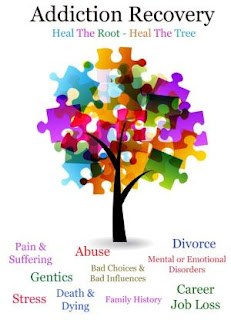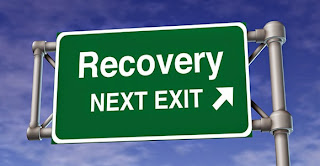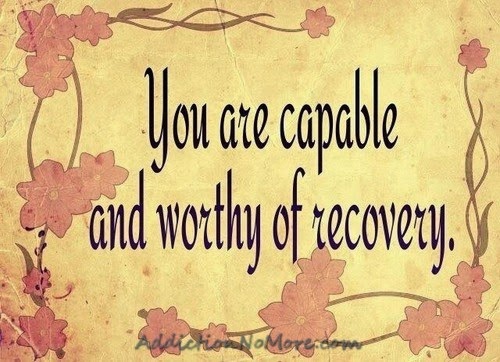Why Do People Binge Drink
To speak with a counselor about binge drinking, click HERE or call 1-800-513-5423 now.
Binge drinking has been defined as a pattern of drinking that brings blood alcohol concentration (BAC) levels to 0.08 g/dL. This typically occurs after 4 drinks for women and 5 drinks for men…in about 2 hours. However, binge drinking can generally be understood as drinking 5 or more alcoholic drinks on the same occasion, on at least one day in the past 30 days.
So, if you or someone you care about is binge drinking…what can you do about it? Here, we review where binge drinking started for one of our writers, a recovering alcoholic. And we review how/why it can progress into alcoholism in many cases. Then, we offer some suggestions for how to get help and invite your questions about binge or problem drinking at the end.
Alcoholism: How Did We Get Here? Part Two
The disease of alcoholism really took off after I got out of college, as I raced like mad into my 20′s. Maybe yours did, too. I prided myself at being able to keep up with the guys, at being able to drink them under the table. In reality, I was starting to build up a tolerance for alcohol, part of the progressive nature of the disease.
But let’s face it, for a while at least, binge drinking was lots of fun. It loosens any inhibitions we may have, enabling us to do things we wouldn't ordinarily do. We talked more and danced better, we laughed harder and more often. You might even say, we had a blast. But sometimes these loosened inhibitions led us into trouble, which happened more than I’d like to admit.
The Chemistry Of Drinking (Too Much)
Part of the reason that people binge drink is that alcohol increases the release of dopamine, the feel good hormone, into your brain. But during heavier drinking, a larger amount of dopamine is released, blocking those negative emotions of anxiety, stress, fear, and insecurities. Which can lead to “risky sexual behavior, criminal activity, fighting and other violence, making inappropriate comments to friends, family or co-workers, the use of other drugs to feel even higher, and driving under the influence. If you experience any of these symptoms while drinking, you may be abusing the substance to feel good about yourself.”
David DiSalvo, a science writer for Forbes Magazine, says that alcohol tricks you into thinking that it’s actually making you feel great, but over time, the dopamine affect diminishes until it’s almost nonexistent.
ADDICTION NEVER LOOKS THE SAME.
That's why we treat the individual, not just the disease.
888-988-7604
So where does that diminishment in euphoric effect take us? For me and for many others, it meant more and more drinking. When a therapist, who I saw in my late 20′s, told me I drank too much and should stop, I stopped seeing the therapist, not the drinking, after just two appointments. I dropped that buzz-killer faster than I could down a bottle of beer. And where did it lead me? To 12 more years of trying to control my alcohol consumption. A feat that grew harder to handle as time went on.
Regular Drinking Can Increase Your Tolerance
The National Institute on Alcoholism and Alcohol Abuse (NIAAA) states that, “Alcohol tolerance is increased by regular drinking. This reduced sensitivity requires that higher quantities of alcohol be consumed in order to achieve the same effects as before tolerance was established. Alcohol tolerance may lead to (or be a sign of) alcohol dependency.”
In other words, in order to get the same buzzed effect that most alcoholics are seeking, and an easy thing to achieve when you first started drinking, it soon begins to take more quantities of alcohol to get that same euphoric feeling that we crave. People can become alcoholics over time simply by chasing the buzz, increasing alcohol tolerance, even to the point of developing alcohol dependence.
When It Becomes Difficult To Stop…
We usually surround ourselves with like-minded people who drink as much as we do, or more, and chose partners who match our drinking or who watch our disease progress, trying to control it for us. Before I got married, I had strong inklings about my disease, but chose to ignore them and stay in denial. I married a man who drank as much as me, but when I had a baby (and by the way, I couldn't make it through the nine months without alcohol), my denial was getting chipped away and I started making rules for myself. I would never drink before 5 pm (except on vacation) or never on Tuesdays, or on Thursdays, when that didn't work. As the journalist Christopher Hitchens once said, “Making rules about drinking can be the sign of an alcoholic.”
I couldn't pass by a liquor store without feeling a tug on my steering wheel. Or attend a social event without having a drink before arriving. You know, to make me feel more sociable. I thought about drinking all day, until that 5:00-inner-whistle blew, giving me permission to have my first. Bottom line was, I had to drink. Until the pain of knowing who and what I was, seemed greater than the pain of stopping.
Which I finally did.
Things To Remember If You Drink Regularly
As Caroline Knapp said, in her memoir, Drinking: A Love Story, “For a long time, when it’s working, the drink feels like a path to a kind of self-enlightenment, something that turns us into the person we wish to be, or the person we think we are. In some ways the dynamic is simple: alcohol makes everything better, until it makes everything worse.”
So remember:
When you first start drinking, you’ll probably think it’s fun. The release of dopamine in your brain makes you feel that way.
The more you drink, the harder it is to get that initial feeling of euphoria. You start building a tolerance to alcohol.
If you have to make rules to control your drinking, then you probably have a problem, and should seek some help.
Where Alcoholics Can Go For Help: 5 Tips
1. Take a self-assessment test for alcohol problems.
How can you tell if you have an alcohol problem? If you think you have a drinking problem, chances are you probably do. It might be helpful to take this self-test issued by the National Council on Alcoholism and Drug Dependence in order to identify possible alcoholism.
2. Seek out support groups.
If the test leans towards a problem, attending a 12-step meeting like A.A., SMART Recovery, or Rational Recovery may be good places to go next. Try a few different meetings before making a decision which one is best for you.
3. Seek one-on-one professional help.
Talking to a psychologist, therapist or counselor will also help. The American Psychological Association operates a “Find a Therapist” directory on their website. It’s a good place to start.
4. Look into treatment centers that treat alcoholism.
Many mental health clinics offer intensive outpatient programs, often referred to as IOPs, for those seeking help for alcohol and substance abuse. While residential rehab may work for some, other people find that a treatment center is the best option for them.
5. Make sure the family is treated.
And lastly, if someone’s else’s drinking troubles you, attending an Al-Anon meeting might be helpful. The CRAFT model for intervention, which requires family participation and training is also helpful.
Resource link

















.jpg)